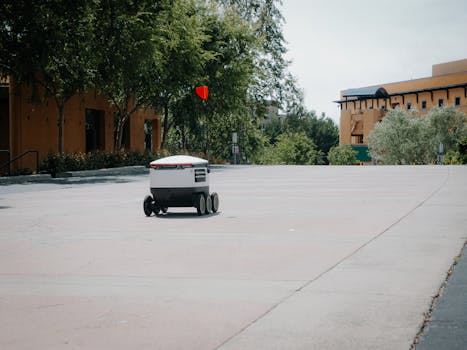
Smart Cities: Urban Trends for 2025
Smart Cities: Urban Trends for 2025 are revolutionizing the way we live and interact with our urban environments. As the world becomes increasingly urbanized, cities are leveraging innovative technology and sustainable practices to create more efficient, livable, and resilient spaces. In this article, we’ll delve into the latest urban trends shaping the future of smart cities in 2025.
Section 1: Introduction to Smart Cities

A smart city is an urban area that utilizes information and communication technology (ICT) to enhance the quality of life for its citizens, while also improving the efficiency of urban operations and services. The concept of smart cities has gained significant attention in recent years, as cities around the world strive to become more sustainable, livable, and competitive. Smart cities integrate various technologies, such as the Internet of Things (IoT), artificial intelligence (AI), and data analytics, to create a more connected and responsive urban environment.
Section 2: Urban Trends in Smart Cities

Several urban trends are shaping the future of smart cities in 2025. Some of the most significant trends include:
- Smart Transportation Systems: Cities are investing in intelligent transportation systems, such as smart traffic management, autonomous vehicles, and hyperloop systems, to reduce congestion, pollution, and travel times.
- Sustainable Energy Solutions: Smart cities are adopting renewable energy sources, such as solar, wind, and hydro power, to reduce their carbon footprint and reliance on fossil fuels.
- Green Infrastructure: Cities are incorporating green spaces, such as parks, green roofs, and urban forests, to mitigate the urban heat island effect, manage stormwater runoff, and improve air quality.
- Smart Buildings and Homes: Smart buildings and homes are being designed with energy-efficient systems, automated lighting and temperature control, and advanced security features to enhance the comfort and safety of occupants.
Section 3: Innovative Technologies in Smart Cities

Innovative technologies are playing a crucial role in shaping the future of smart cities. Some of the most exciting technologies include:
- Artificial Intelligence (AI): AI is being used to analyze data from various sources, such as sensors, cameras, and social media, to optimize urban operations, predict maintenance needs, and enhance public safety.
- Internet of Things (IoT): IoT devices are being used to collect data from various sources, such as traffic sensors, air quality monitors, and energy meters, to create a more connected and responsive urban environment.
- Blockchain: Blockchain technology is being used to secure data, enable transparent transactions, and create trust among citizens, businesses, and government agencies.
Section 4: Challenges and Opportunities in Smart Cities

While smart cities offer numerous benefits, they also present several challenges and opportunities. Some of the most significant challenges include:
- Data Privacy and Security: The collection and analysis of large amounts of data raise concerns about data privacy and security, particularly in the context of surveillance and profiling.
- Digital Divide: The adoption of smart city technologies can exacerbate existing social and economic inequalities, particularly for marginalized communities with limited access to technology and digital literacy.
- Infrastructure and Funding: The development of smart cities requires significant investment in infrastructure, which can be a challenge for cities with limited budgets and resources.
Despite these challenges, smart cities offer numerous opportunities for innovation, economic growth, and social development. By leveraging technology and sustainable practices, cities can create more livable, resilient, and competitive environments that benefit all citizens.





